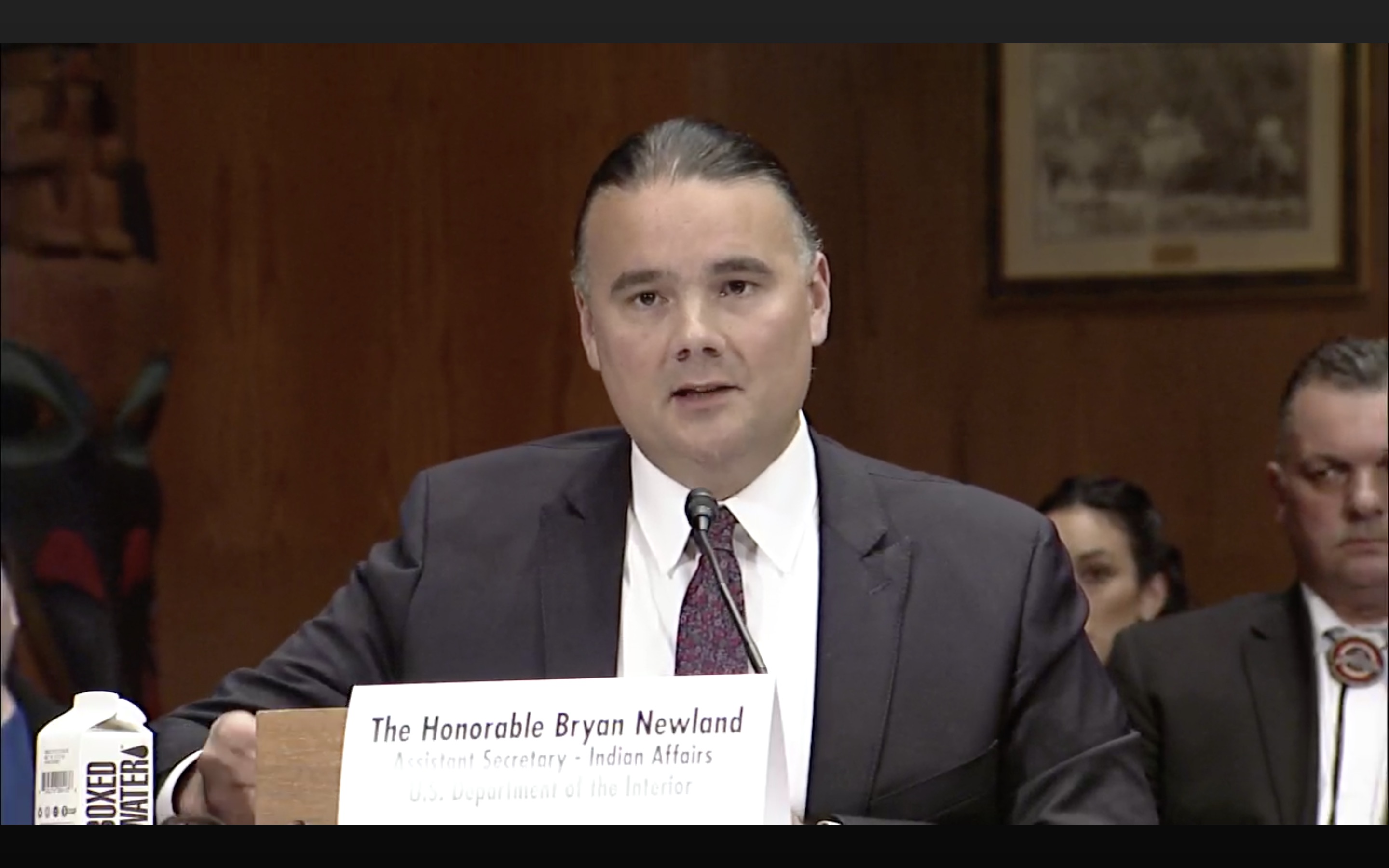
- Details
- By Chez Oxendine
- Sovereignty
WASHINGTON—The Senate Committee on Indian Affairs convened earlier this month to discuss matters of land access, ownership and acquisition during a hearing at the Dirksen Senate Office Building.
One of the bills discussed during the May 3 hearing could clear a path for longer leases and more self-determination in the use of trust lands, addressing a longstanding issue in Indian Country.
The bill in question is S. 1322, Unlocking Native Lands and Opportunities for Commerce and Key Economic Developments, or the UNLOCKED Act. The legislation proposes amendments to Indian Self-Determination and Education Assistance Act, specifically the Long Term Leasing Act of 1955 that would lengthen land leases to one 99-year period. This would support economic development on tribal lands, which is often stymied as potential party show disinterest in shorter lease terms.
The UNLOCKED Act would also establish a process by which tribes can take hold of their own right-of-way approvals, similar to the Helping Expedite and Advance Responsible Tribal HomeOwnership Act of 2012, or HEARTH Act.
Interior Assistant Secretary for the Bureau of Indian Affairs Bryan Newland told the Senate panel that the BIA supported the bill’s passage. During the hearing, he pointed to his own work as president of the Bay Mills Indian Community in Michigan as an example of the bill’s potential impact.
“I think back to a time when we were working on a housing development in my community when I was tribal president, and we had to get rights of way for different utilities and a roadway to move that development forward,” Newland said. “It was an agonizing process and had we had the opportunity to have tribal control over that process, we could have achieved that approval much more quickly.”
Moreover, creating a program that would give tribes rights-of-way approvals would clear up a “sore spot” at the BIA — a dense backlog of approval requests, made necessary by the fact that the BIA supervises the use of many Native lands held in trust by the federal government.
“The Department has adopted new regulations to speed that up, but I think we all agree that when tribes control the timelines and how these lands get used, it moves faster,” Newland told the panel. “We think this is in the tribes’ best interest.”
Committee Vice Chair Sen. Lisa Murkowski (R-Alaska,) pointed to Congressional acts approving 99-year leases for 60 individual tribes, and contended a blanket act would smooth the process considerably. Slowly approving the leases for each tribe would be a waste of both Congressional and tribal resources, Murkowski said.
Discussion continued regarding the other two bills discussed during the hearing, the Keweenaw Bay Indian Community Settlement Act of 2023 (S. 195,) and the Puyallup Tribe of Indians Land into Trust Confirmation Act of 2023 (S. 382.)
The former act would settle the Keweenaw Bay tribe’s claim to lands along the exterior boundary of the L’Anse Indian Reservation in Michigan. The tribe sought monetary compensation for roughly 2,743 acres lost under Congress’ Swamp Land Act in 1850, and between 1,333 to 2,720 acres to the Canal Land Act in 1852.
Rather than reclaiming lands directly, the tribe is seeking monetary compensation. The S. 195 legislation proposes to pay the Keweenaw Bay Indian Community $33.9 million for the land.
“The Community understands that our neighbors who currently hold this land have clean hands and we do not seek to disturb their ownership. However, the Community is still entitled to just compensation,” Keweenaw President Doreen Blaker said during her testimony. “The Tribal Council sought this approach because we believe in an approach to justice that restores harmony and relationships while making the aggrieved whole.”
Newland said the BIA supported the bill, and praised the tribe for their “cooperative efforts.”
The third act discussed, S. 382, would take roughly 17.2 acres of Puyallup Tribe fee lands in Pierce County, Washington into trust. The act would help the tribe avoid expensive remediation of the lands in question, which have shown levels of soil and groundwater contamination by petroleum products and fuel.
The tribe pursued this route rather than the traditional method of having the BIA acquire the land directly at the advice of the Department of the Interior, Newland noted during his testimony. Puyallup councilwoman Annette M. Bryan said the tribe had “exciting” plans for development of the land under its new trust status.
“By adding these lands in the Port of Tacoma, the tribe is well positioned to develop a 21st century shipping terminal that will help address the backlog facing our Nation’s ports,” Bryan said during her testimony. “The placing of this land into trust will make this land the first international tribal trade center in modern times.”
